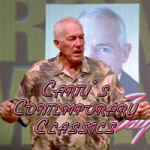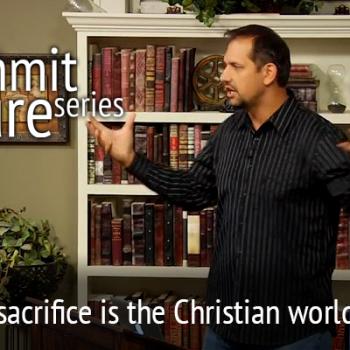
 Reflections of Grace 93: Life Purpose Coaching – Can Christians be Codependent? Play Now | Play in Popup | Download
Reflections of Grace 93: Life Purpose Coaching – Can Christians be Codependent? Play Now | Play in Popup | Download“In the park we step on this bright shiny red merry-go-round. Everyone is happy and ready for a lot of love, fun and a great future.”
But then something happens. A pattern has emerged. There seems to be something very binding about your relationship. You feel like you are in prison and you can’t get out.
- Codependency is living the myth that you can make yourself happy by trying to control people and events outside yourself. A sense of control or lack of control is central to everything you do and think.
- Psalms 139:14 says that you are fearfully and wonderfully made. You are unique. You have dignity and worth. As you grow in this knowledge you will no longer need to use your codependent behavior to make you feel alive and worthwhile. You WILL recover…
There has been a lot of confusion on what real love is. On the surface, codependency sounds like “Christian teaching.”
- Codependents always put each other first before taking care of themselves. (Aren’t Christians to put others first?)
- Codependents give themselves away. (Shouldn’t Christians do the same?)
- Codependents martyr themselves. (Christianity honors its martyrs.)
But true codependents aren’t really healthy, giving people. They learn to get their validity from other people rather than from Jesus! And they hinder those people they try to “fix” in their lives and their walk with God.
- It is actually the opposite of God’s love!
- In its broadest sense, codependency can be defined as an addiction to people, behaviors, or things. Codependency is the fallacy of trying to control inner feelings by controlling people, things, and events on the outside. To the codependent, control or the lack of it is central to every aspect of life.
”Then Denial, Delusion, Justification, Rationalizations, Reverse Projection… emerge…these are all signs and symptoms of a co-dependent and addicted personality…”
Jesus taught the value of the individual.
- He said we are to love others equal to ourselves, not more than ourselves. In fact, it is the 2nd Commandment after loving God with all your heart, mind, and body.
“ The second is equally important: ‘Love your neighbor as yourself.’ No other commandment is greater than these.” Mark 12:31
The love of self forms the basis for loving others in the truest sense of the word.
The differences between a life of service to others and codependency take several forms. Motivation differs.
- Do you give your service freely or because you consider yourself to be of no value?
- Do you seek to “please people?”
- Do you act out of guilt or fear?
- Do you act out a need to be needed (which means you actually use the other person to meet your own needs)?
In their book, “Love is a Choice”, Drs. Hemfelt, Minirth & Meir” state:
“Codependency can be defined as an addiction to people, behaviors, or things. Codependency is the fallacy of trying to control interior feelings by controlling people, things, and events on the outside. To the codependent, control, or the lack of it, is central to every aspect of life. When it comes to people, the codependent has become so elaborately enmeshed in the other person that the sense of self— personal identity — is severely restricted, crowded out by that other person’s identity and problems.”
I see signs of codependency in many clients who come to me with relationship problems…they are worn out and exhausted and feel trapped in a relationship that makes them feel totally controlled.
- The Lord has shown me that when we can’t put up our personal boundaries and we continue to rescue people by rushing in when they have a need and become their Savior, we are actually not only deceiving ourselves, but we allow the other person to make YOU their Jesus instead of them learning to turn to God to meet their needs.
- That’s a big order to fill. Can you do what Jesus can do for them?
- In fact, we enable them to continue on with their neediness in our lives and drain us of our energy-while we take the place of Jesus… and they never get their needs met.
There will always be another episode of control if someone doesn’t get off of the Merry Go Round and say “enough of this.”
When no one gets off, the Merry Go Round spins faster and faster until it is out of control. When the crisis is over then everyone is remorseful and say their sorry until the next ride. And it begins again.
- When the addicted person continues the same behavior over and over again expecting a different ending, and we make threats or promises that we don’t keep… it is insanity.
- Someone has to keep their promise and follow through in order to stop the Merry Go Round.
- This is not about confrontation, this is about stopping the cycle.
You are aware that you do this but you have gotten away with it for so long that you have developed a false power. In the midst of your pain.
- Do you see these tendencies in yourself? Or in someone who is reaching out to you?
Have you asked God to bring this into the light so you can deal with it or help someone else?
You know as well as I that it is never easy to expose darkness.
But if you want freedom again, you have to get off the Merry-Go-Round once and for all.
So, from a believer’s standpoint here are some truths that might help you.
If you will take this issue to Jesus, you will find that:
- We have worth simply because we were created by God.
- Our self-worth is not based on the work we do or the service we perform–but on what Jesus so freely gives us.
- Our service is to be an active choice. You can learn to “act” rather than “react.”
- Our faith shows how to live a balanced living and how to take care of ourselves.
- As you seek His wisdom you will learn to choose balanced behavior rather than addictive behavior and to allow others to be in charge of their own lives
- You can learn how to set and hold healthy boundaries and to set limits for yourself, not allowing others to compromise those boundaries.
- You can actually learn to help others in appropriate ways, by allowing others to act independently, rather than making others dependent on you.
- You can learn to be God-directed and free from compulsiveness, knowing that God, through the power of the Holy Spirit, brings the ultimate results.
It is for freedom that Christ has set us free. Stand firm, then, and do not let yourselves be burdened again by a yoke of slavery. Galatians 5:1
(If this podcast has left you feeling like you need help with codependency tendencies in your life, you might want to consider Life Coaching! Contact me through my home page.)
















